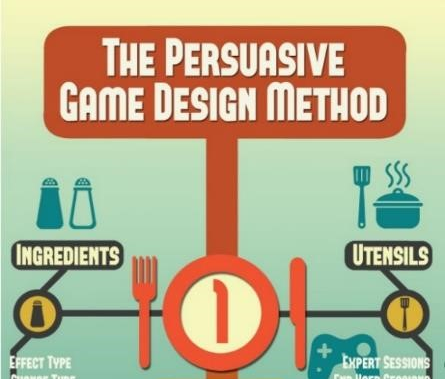A cookbook method for Persuasive Game Design
DOI:
https://doi.org/10.17083/ijsg.v5i1.159Abstract
Despite the growing interest in persuasive game design, there have been few methods which cover the complete process of game design that designers could draw upon in their practice. In this paper, the Persuasive Game Design method(PGD) is presented as a non-directive approach for designing persuasive games including a practical hand-out. To better fit with the practical constraints encountered in game design, this method adopts a “cookbook” approach. A set of essential PGD components and tools are provided from which game designers can choose from, given their specific context and resources. Designers first consider the game design steps(“dishes”) to use in creating their game and in each step, select which components(“ingredients”) to take into account and tools(“utensils”) to use. The proposed method, based on our experience as persuasive game researchers and design practitioners, is further refined using feedback from professional game designers. The paper concludes with a case study illustrating how to put the meal into practice. Overall, the method provides a useful contribution to the existing research domain by combining knowledge from game theory, game design and design methodology to create a structured yet flexible approach which covers the complete persuasive game design process for researchers, students and practitioners.

Downloads
Published
Issue
Section
License
IJSG copyright information is provided here.
